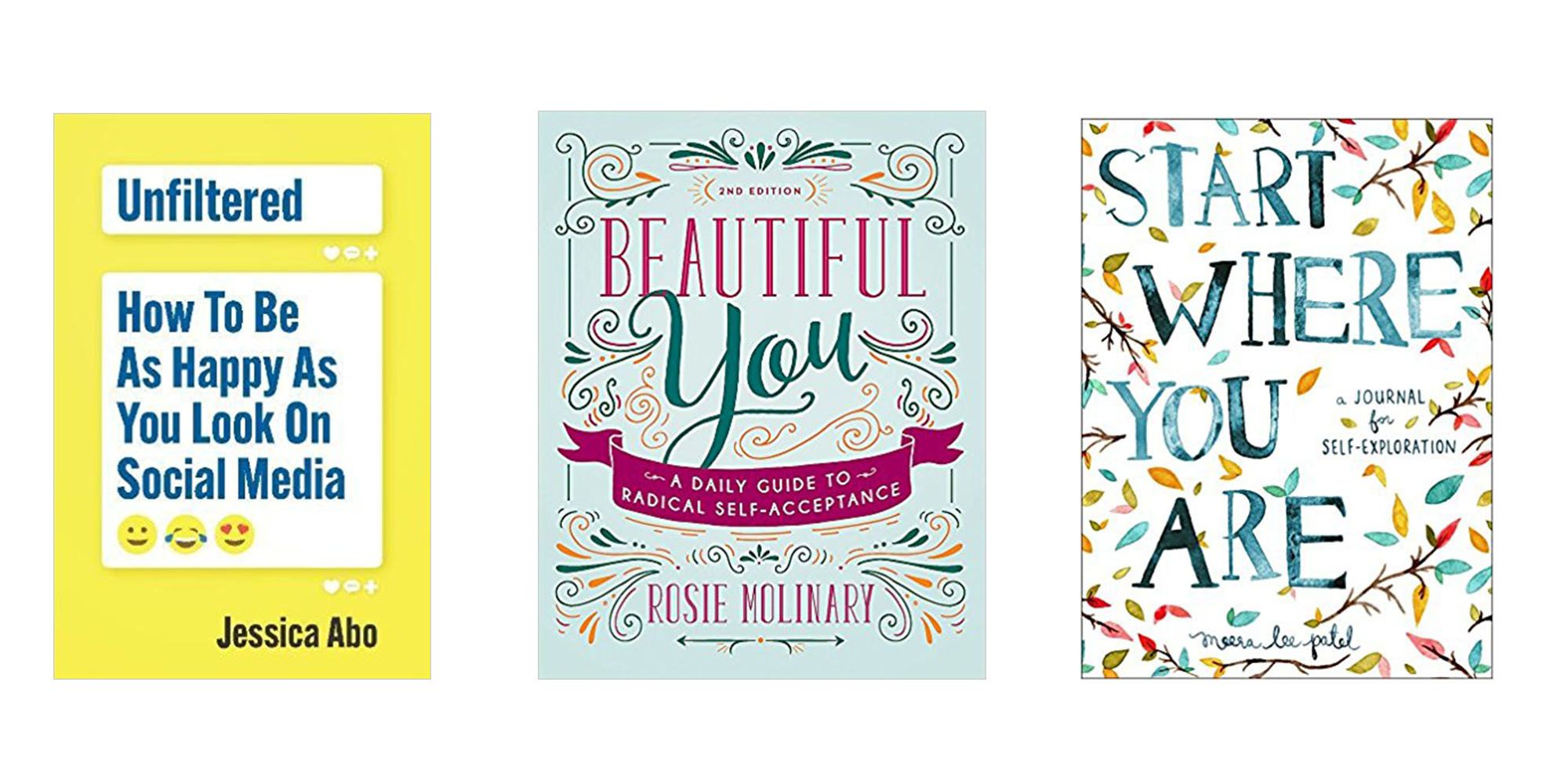If You're Always Worried Your Partner's About To Break Up With You, Read This
You strut down the sidewalk, speak up at work, and arrive at a party like you own the place, but when it comes to your relationship? All that confidence goes right out the window. It doesn’t matter that your partner has chosen to be with you; you can’t shake your feelings of relationship insecurity.
“Almost all of us bring some insecurities to our relationships,” says Jill Squyres, PhD, a licensed psychologist in Eagle, Colorado, specializing in couples and family counseling.
No matter how hard you might try to manage relationship insecurity, it’s often in the back of your mind when you’re with your partner. Suddenly, you second-guess everything you do and say, worried that one tiny misstep will put your flaws on full display. And all the reassurance in the world from them just isn’t quite enough.
That’s no way to spend a relationship (or your life, tbh), but hey, it happens…a lot.
“The most common insecurity people bring into relationships is that they’re ‘not enough’—not sexy enough, not pretty enough, not thin enough, not successful enough—all of them have to do with not being enough,” explains Terri Orbuch, PhD, author of 5 Simple Steps to Take Your Marriage From Good to Great and professor at Oakland University in Michigan, Institute for Social Research.
That said, insecurities can—and do—run the gamut, Squyres adds. A few common ones:
- Doubting that you can have a healthy and satisfying long-term relationship. As in, you’re worried that once the shininess of a new relationship wears off, your partner won’t love the “real you.” (Or vice versa.)
- Worrying about changing or mismatched relationship goals, expectations, and values. Thoughts you might experience: What if they decide they don’t want kids? What if we can’t agree on where to live?
- Fearing that your partner will suddenly abandon you. This one is more common if you have an anxious attachment style, which usually stems from what you observed about relationships growing up and how your parents responded to your needs.
So yeah, it’s totally normal to have insecurities in relationships, but obsessing over them won’t do you or your partner any good.
Instead, try this 7-step, expert-approved process to prevent your hangups from sabotaging your bond:
1. Stop assuming your insecurities are your fault.
…Or your partner’s. Insecurities don’t just pop up out of nowhere. Certain events, people, ex-partners, or even current partners can often trigger them, according to Orbuch.
Since you can’t control all that (especially, ya know, other people), focus on what you can control: yourself. Letting go of self-blame and -bashing is the first step to tackling your insecurities head on.
Think you’re the only one with insecurities? Not even close. Even celebs have them:
2. Approach your insecurities with curiosity.
Forget all the defense mechanisms you used to survive the three-year insecurity fest that was middle school. You’re an adult now, which means it’s time to own your doubts.
The best way to do that, according to Squyres, is by looking at them with curiosity and an open mind.
Spend time pinpointing exactly why you think you’re not enough. (“My first boyfriend cheated on me, so clearly I don’t have what it takes to keep people interested for the long haul.”)
Evaluating where your insecurities are coming from (write them down so you can view them like a third party, if you need to) will help you figure out if they’re actually based in truth or just plain fear.
You’ll see that most of (if not all) the time, it’s the latter.
3. Tell your partner how you feel.
Unless your S.O.’s a mind reader (spoiler alert: they’re not), you need to tell them when you’re feeling insecure—and encourage them to do the same for you.
“A safe emotional space with your partner creates a strong foundation for a loving relationship.”
“A safe emotional space with your partner, where you know you can discuss worries in a direct but gentle way, creates a strong foundation for a loving, trusting relationship,” Squyres says.
This can be more difficult if your partner’s behavior triggers your insecurities, of course, but that’s when it’s even more important to get everything out in the open.
“You never want to go into attack mode, but you also don’t want hold in when you’re feeling insecure [based on their actions] and let it fester,” she says. “If you do, the emotional pressure cooker this creates will explode, and the results won’t be pretty.”
To avoid that whole mess, be super transparent about what’s bothering you and why.
Maybe your partner has a flirty personality, and you go into worst-case-scenario mode the second you see them chatting to another person. “Often what one person considers flirting, the other considers friendliness,” Squyres notes.
She suggests explaining how each of you sees the difference between flirting and friendliness—or whatever discrepancy is at hand—then discussing what you’re willing to change going forward.
This, Squyre says, can bring you and your partner much closer together and builds a solid foundation of trust.
4. Focus on your positive attributes.
RuPaul said it best: “If you don’t love yourself, how in the h*ll you gonna love somebody else?” Easier said than done, I know. No one (not even the most confident drag queen) becomes a self-love master overnight—you’ve gotta start small.
Orbuch recommends making a list of five things that you like about yourself, then reading it whenever you begin to feel self-doubt.
While you’re at it, make a list of your unique gifts too, she says. Maybe you make Instagram-worthy acai bowls on the reg or tackle hills in your cycling class like a pro. Whatever your talents, celebrate them.
5. Strengthen those wins.
Building upon your self-confidence in one area of your life that’s already going well—work, for example—is a fabulous way to boost your self-image all-around.
Taking time to strengthen your skills, talents, whatever you like about yourself as an individual can translate to your relationship, helping you overcome your insecurities as a partner, Orbuch says.
After all, if you truly believe that you’re a total catch (which, btw, you ARE), your other half will, too.
6. Don’t compare yourself to others.
Oh, Instagram: the apex of inspiration AND insecurity. The social media platform makes it all too easy to trigger instant self-doubt, mostly because it can cause you to compare your life (with all its ups and downs) to someone’s highlight reel.
Remember: The most common insecurity people bring into relationships is feeling like they’re “not enough,” says Orbuch. But you can’t feel like you’re “not enough” if you have no one to compare yourself to, right?
One (relatively) easy way to stop negative comparisons is to take a social media break, even if it’s just for a few hours or days. Or decrease your use of social media overall. (Gasp.)
Cutting back on scrolling will help you reset expectations for yourself and your relationship, and most important, these expectations will be based on your actual wants and needs, not how you **think** you measure up to others.
If you still find yourself in a “she is X, they have Y” mindset, consider muting or unfollowing people who spike that negative comparison rabbithole.
Then go back to your list of talents, or create one that spells out all the things you’re grateful for in your life, so you’re not only forced to leave the app, but you also remember that there is no one—I repeat, no one—just like you.
7. Talk to a professional.
Real talk: Even if you have the most supportive partner in the world, sometimes you just gotta get outside help. Insecurities can result from your history, yes, but also just your general personality, Squyres says. “Some people are just more anxious, compulsive, ruminative, or self-conscious than others.”
So if you’ve put in all the work above and still don’t feel better, it might be time to talk to a therapist or coach, notes Orbuch. Then, together, you can set goals and figure out strategies to change.
Talking to a professional can also help you see your insecurities in a new light.
For example, maybe you’ve already figured out the root cause of your insecurity is betrayal from a past partner. You fear your current partner will do the same thing, but you don’t necessarily want to say that to them.
Having an unbiased person, like a therapist or coach, listen to your concerns and make you deep-dive into them can help you find connections that you wouldn’t if you were just venting to a friend who nods along.
Ultimately, take heart in knowing that “a good relationship built on love, respect, communication, and commitment should help most people lose their insecurities,” says Squyres.
And know this: When people really know your flaws, and love you anyway, you can discover a level of confidence you may not have found on your own.
Aww.
Source: Read Full Article



